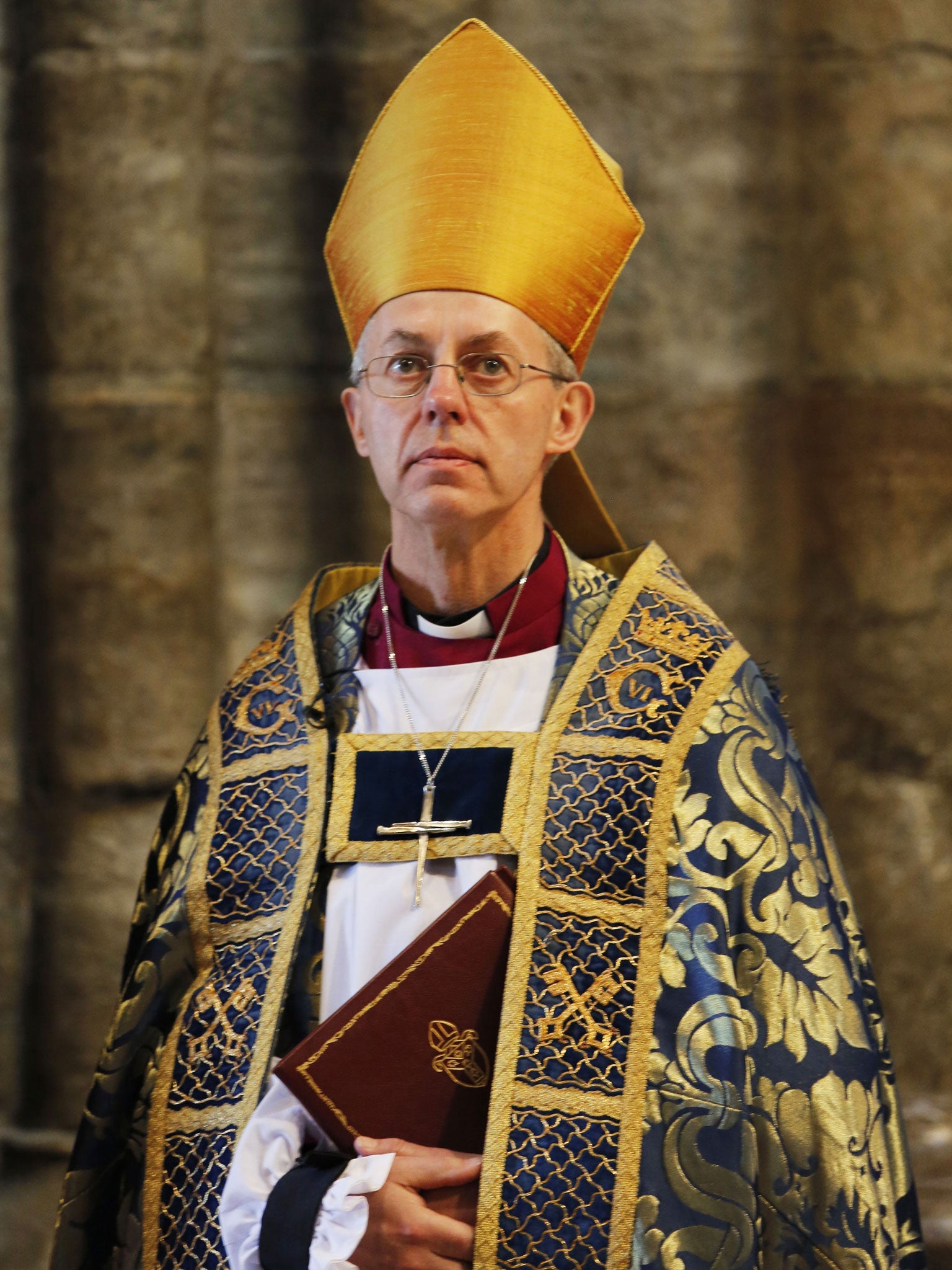Archbishop Justin Welby’s stance on Israel and Palestine raised by Middle East visit

Your support helps us to tell the story
From reproductive rights to climate change to Big Tech, The Independent is on the ground when the story is developing. Whether it's investigating the financials of Elon Musk's pro-Trump PAC or producing our latest documentary, 'The A Word', which shines a light on the American women fighting for reproductive rights, we know how important it is to parse out the facts from the messaging.
At such a critical moment in US history, we need reporters on the ground. Your donation allows us to keep sending journalists to speak to both sides of the story.
The Independent is trusted by Americans across the entire political spectrum. And unlike many other quality news outlets, we choose not to lock Americans out of our reporting and analysis with paywalls. We believe quality journalism should be available to everyone, paid for by those who can afford it.
Your support makes all the difference.The Archbishop of Canterbury arrived in Egypt on Sunday at the start of a five-day tour of the Middle East that will see his stance on the Israeli and Palestinian conflict scrutinised.
The Most Reverend Justin Welby, who recently revealed he regretted not voting against a General Synod motion backing a group which places Christian human rights observers in the Occupied Territories, is due to visit both Israel and the West Bank.
Lambeth Palace said Archbishop Welby had chosen the Holy Land for his first foreign visit since being enthroned because of the region’s importance to global stability.
The former oil executive, 57, who was elevated to head of the world’s 85 million Anglicans after just over a year as a bishop, learned earlier this year that his father had been born a Jew and previously unknown family members had died in the Holocaust.
The archbishop attracted controversy earlier this year when he said he regretted last summer’s vote by the Synod in support of the Ecumenical Accompaniment Programme in Palestine and Israel, saying the motion had failed to reflect the complexity of the Israeli-Palestinian conflict. The motion had attracted strong opposition from British Jewish groups.
Dr John Dinnen, the Synod lay member who proposed the motion, which received support from Archbishop Desmond Tutu and was overwhelmingly passed, said yesterday he hoped that Archbishop Welby would see the work of EAPPI and other peace groups while in the region.
Join our commenting forum
Join thought-provoking conversations, follow other Independent readers and see their replies
Comments